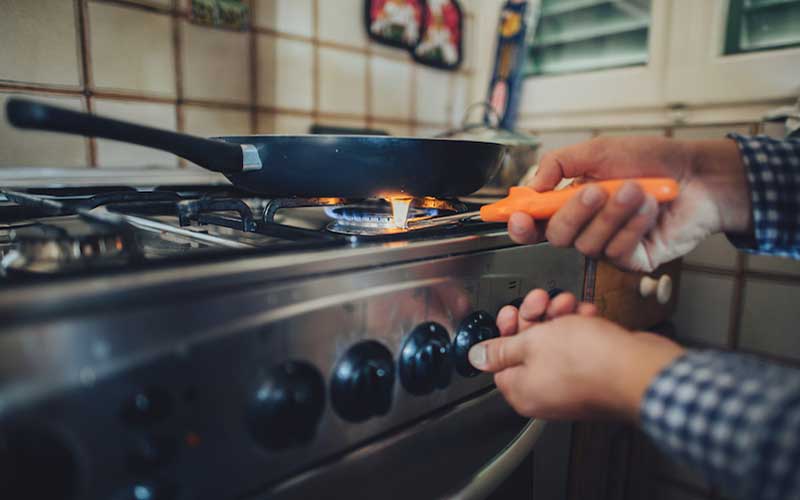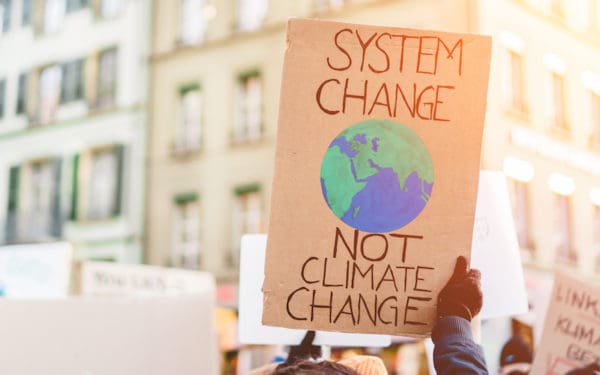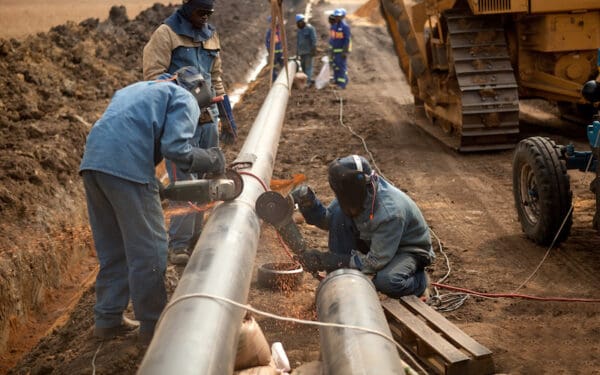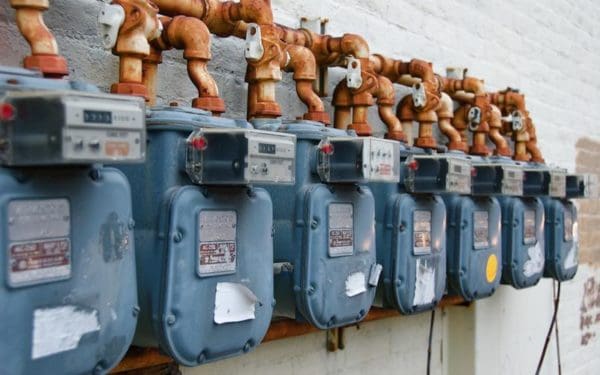
The gas that powers our stoves is a type of dirty fossil fuel that warms our planet and hurts our health. Photo: Shutterstock.
Turning on a gas stove is so familiar that those of us who use one barely have to think about it. It’s muscle memory: Push the knob in, wait for the faint hiss of gas and the “click click click click” until the flame ignites. But do you know where the gas comes from? And that gas stoves actually harm our health?
The gas from our stoves comes from underground drilling and fracking, and a small percentage comes from above-ground sources like landfills or farms. After a gas company drills gas from the ground, a pipeline transports it to its final destination: your home.
Burning gas creates heat, which quickly cooks our food. But it also releases pollutants like nitrogen dioxide and carbon monoxide, which harm our health.
How Does a Gas Stove Put Your Health at Risk?
Gas companies tell us that our stoves are safe, but that’s not completely true. Using gas stoves has been linked to increased rates of asthma in children. And, running a gas stove or oven for just an hour can raise the level of nitrogen dioxide in our homes above safe indoor limits all day. In children, this toxic gas can irritate airways, increase susceptibility to allergens, and cause learning deficits, among other harms.
Gas stoves also release carbon monoxide. Properly functioning stoves don’t produce enough of it to cause immediate health problems or set off your home’s carbon monoxide detector. But even low levels of exposure to this dangerous gas pose risks to children and people who are elderly or pregnant.
These health concerns are especially acute for low-income homes, which tend to have smaller kitchens with less ventilation.
Gas Stoves Don’t Just Heat Our Food – They Warm Our Climate, Too
A dangerous fossil fuel, gas emits polluting emissions when burned – which is the root of our climate crisis. Beyond the public health risks that gas stoves pose, they also keep New England reliant on dirty gas at a time when we urgently need to break our fossil fuel addiction.
Switching gas appliances to electric ones is one of the cheapest and easiest pathways to cutting the climate-damaging emissions warming our planet. While gas stoves themselves don’t emit significant emissions, fracking and transporting gas along massive pipelines do – not to mention the often leaky infrastructure that connects our homes to gas supplies. New England states can’t reach their goals of net zero emissions by 2050 without ending our use of this dirty fuel.
Why Do We Still Use Gas Stoves?
It’s hard to stop using gas stoves completely. Alternatives like electric induction cooktops are safer than gas and provide the same level of temperature control, but they’re expensive. And those of us who rent our homes may not have the option to change our stoves at all.
And, of course, gas companies don’t want us to stop.
These companies not only consistently deny that gas stoves pose any health risks, but they also try to influence how we perceive our gas stoves. Some companies have even paid Instagram influencers to promote gas stoves. The American Gas Association, which supports gas stoves, recommends “common-sense” safety measures like ventilating your kitchen to limit indoor air pollution. Ironically, the gas industry’s influencers don’t always follow these safety measures.
Gas companies also interfere with efforts to limit gas use at the city and town levels. When towns propose banning gas in new buildings, gas companies often claim that it’s their customers who oppose electrification. Such claims make it harder for policymakers to replace gas with cleaner technologies.
Cooking Up Solutions
How can you protect yourself and your family from the dangers posed by gas stoves? If you’re able, think about switching to an electric induction cooktop. If that’s not an option, then make sure to ventilate your kitchen by opening windows and running vents and fans to protect yourself.
One of the easiest things we can all also do is talk about these issues. Tell your friends and family about the health risks of gas stoves, especially if they’re thinking about getting a new stove.
Gas stoves are bad for our environment and for the people who use them. That’s just one more reason why New England needs to stop relying on dirty gas.




